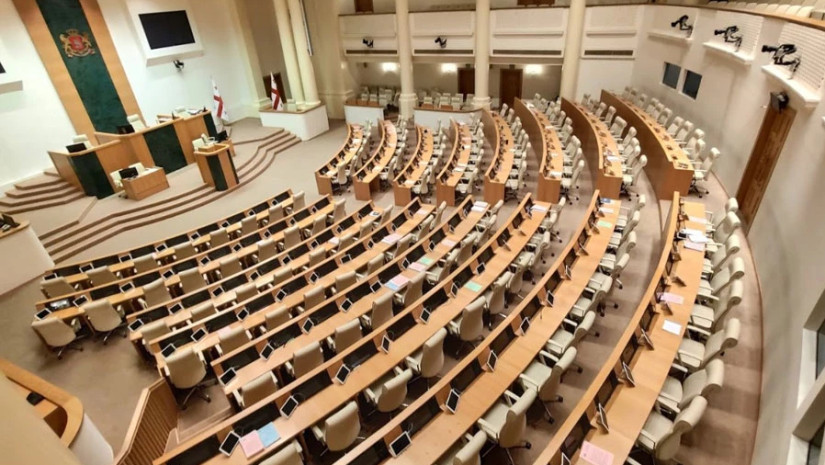Georgian Dream has once again introduced amendments to the Law on Grants and adopted the relevant draft law at today's plenary session of the Parliament in the third reading.
The legislative initiative was approved unanimously by 84 votes.
According to the draft, grants implemented within the framework of the European Union's research and innovation program, Horizon Europe, and the European Union's Erasmus+ program will no longer be subject to the obligation to receive consent from the government.
In addition, the draft was revised during the review process and the changes also affected other articles. In particular, according to additional amendments, technical assistance provided by an international donor organization or a foreign government in the form of sharing technologies, as well as specialized knowledge, skills, expertise, and "other types of assistance" will be considered a grant. In addition, defense and security have been added to the list of areas in which grants can be issued.
The revised draft law amended the list of grant-giving donors and added “as well as other international organizations.” This means that any funds provided by any international organization will be considered a grant.
According to the final draft law, the legal basis for granting a grant will be a written agreement between the donor and the grantee, as well as a written decision of the foreign grantor.
According to the Georgian Dream decision, a law is in force in Georgia, according to which the consent of the government or an authorized person/body designated by the government is necessary for granting a grant. Acceptance of a grant issued without consent is prohibited. The Anti-Corruption Bureau has been tasked with monitoring the issuance and receipt of unauthorized grants.


















